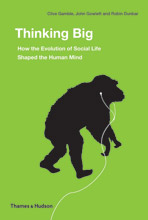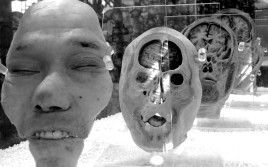Transcript
Podcast produced and presented by Craig Barfoot
What makes us human? When, why and how did the human brain evolve?
Professor Clive Gamble argues that it was not the tools that form the bulk of the archaeological record, but rather the social world within which our ancestors lived that drove the development of the human brain.
In this conversation with Pod Academy’s Craig Barfoot, he suggests that the evolution of the social brain tells us not only about human behaviour in the past but also about the importance of networking in our complex modern world.
Clive  Gamble is Professor of Archaeology at the University of Southampton. His work involves the study of our earliest ancestors and in particular the timing of global colonisation. This podcast focuses on his most recent book, Thinking Big: How the Evolution of Social Life Shaped the Human Mind.
Gamble is Professor of Archaeology at the University of Southampton. His work involves the study of our earliest ancestors and in particular the timing of global colonisation. This podcast focuses on his most recent book, Thinking Big: How the Evolution of Social Life Shaped the Human Mind.
Tags: Human evolution, The social brain, What it means to be human


Humans brag about our great intellect, because our brain is twice as large as that of mamiferos, because through the years, the human brain has tripled in size, much of its development focus in the past two millions of years. While we have not scale to corroborate the weight of old brains, if we have some fossils that have been preserved intact cranial cavity of our ancestors and give us important information about them, the human brain is a jewel that we as living beings can enjoy this, the brain has several functions, one of which is learning, it is very important to always know more about this, to understand many things about our ancestors and the new.